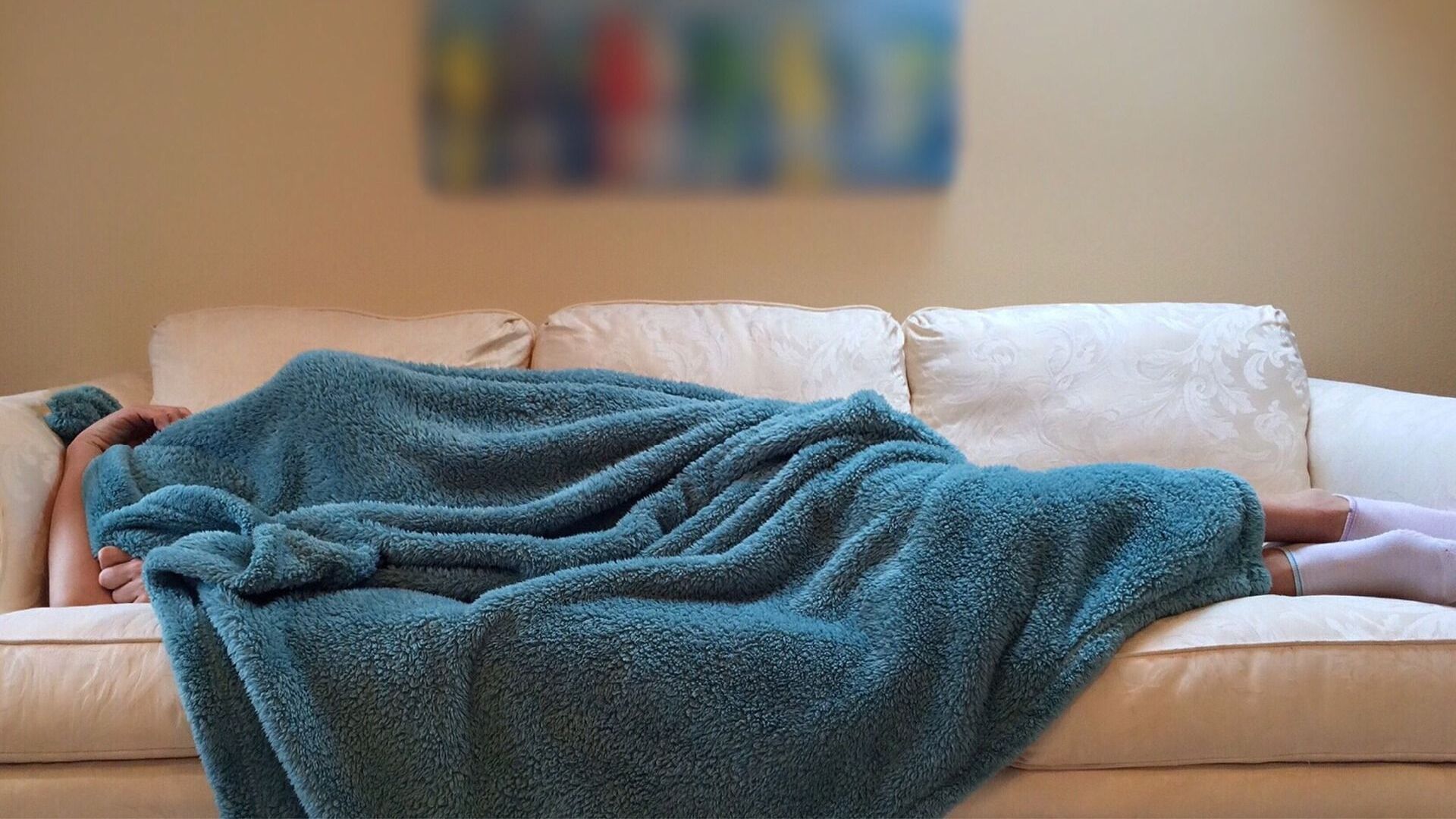https://sputnikglobe.com/20221019/sound-cue-method-can-be-used-to-erase-specific-memories-while-you-sleep-researchers-find-1102435109.html
‘Sound Cue’ Method Can Be Used to Erase Specific Memories While You Sleep, Researchers Find
‘Sound Cue’ Method Can Be Used to Erase Specific Memories While You Sleep, Researchers Find
Sputnik International
Targeted memory reactivation (TMR) is a methodology used to manipulate memory processing during sleep. Memory reactivation during sleep can shape new memories... 19.10.2022, Sputnik International
2022-10-19T23:20+0000
2022-10-19T23:20+0000
2022-10-19T23:19+0000
science & tech
study
sleeping
memory loss
researchers
university of york
https://cdn1.img.sputnikglobe.com/img/07e5/05/08/1082835040_0:195:1920:1275_1920x0_80_0_0_6ac1031b22040f77608e89f8ecd673f4.jpg
Scientists at the University of York have determined that playing sounds to someone while they're sleeping can help them forget specific memories, a fact that might be helpful in developing techniques aimed at lessening the effects of intrusive or traumatic memories.“Although still highly experimental at this stage, the results of our study raise the possibility that we can both increase and decrease the ability to recall specific memories by playing sound cues when an individual is asleep,” Dr. Bardur Joensen, who worked in York’s Department of Psychology, said in a university release.Joensen and other study authors taught 29 participants associations between overlapping pairs of words called word-stimulation pairs. These pairs consisted of a famous name matched with an object (ex: David Beckham-bicycle). Then, while the participants slept overnight in the university’s sleep lab, the scientists studied their brain waves until the participants reached deep sleep, or stage 3 sleep. Once in stage 3 sleep, the scientists quietly presented one of the spoken pairs from the association set.Earlier studies have shown that learning a pair of words and then hearing a sound associated with that pair during sleep can make it more likely for participants to remember the word-pair upon waking. However, this study found that when pairs of words overlapped, participants were likely to remember the first pair, but were less likely to remember the other pair, indicating that it’s possible to induce “selective” forgetting by playing associated sounds during sleep.Sometimes called slow-wave sleep, this sleep phase lasts between 70 and 90 minutes and takes place during the first few hours of rest. During this kind of sleep, our brainwaves are slowest, and our physical bodies restore themselves. This is the same sleep phase where bedwetting, night terrors and sleepwalking occurs, but it's also when short term memories can turn into long-term memories.“This research raises the possibility that this process could be manipulated so that sleep could be used to help weaken painful memories. The next steps for our research team are to establish how these cues cause forgetting, so that we can turn the effect on and off, and whether we can use the same technique to weaken existing real-world memories.”The study is published in the journal Learning & Memory.
https://sputnikglobe.com/20220316/scientists-share-tips-to-restore-impaired-memory-1093915204.html
Sputnik International
feedback@sputniknews.com
+74956456601
MIA „Rossiya Segodnya“
2022
News
en_EN
Sputnik International
feedback@sputniknews.com
+74956456601
MIA „Rossiya Segodnya“
Sputnik International
feedback@sputniknews.com
+74956456601
MIA „Rossiya Segodnya“
science & tech, study, sleeping, memory loss, researchers, university of york
science & tech, study, sleeping, memory loss, researchers, university of york
‘Sound Cue’ Method Can Be Used to Erase Specific Memories While You Sleep, Researchers Find
Targeted memory reactivation (TMR) is a methodology used to manipulate memory processing during sleep. Memory reactivation during sleep can shape new memories into long-term memories. However, too much of a specific kind of TMR can lead to forgetting, a recent study shows.
Scientists at the University of York have determined that playing sounds to someone while they're sleeping can help them forget specific memories, a fact that might be helpful in developing techniques aimed at lessening the effects of intrusive or traumatic memories.
“Although still highly experimental at this stage, the results of our study raise the possibility that we can both increase and decrease the ability to recall specific memories by playing sound cues when an individual is asleep,” Dr. Bardur Joensen, who worked in York’s Department of Psychology, said in a
university release.
“People who have experienced trauma can suffer a wide range of distressing symptoms due to their memories of those events. Though still a long way off, our discovery could potentially pave the way to new techniques for weakening those memories that could be used alongside existing therapies.”
Joensen and other study authors taught 29 participants associations between overlapping pairs of words called word-stimulation pairs. These pairs consisted of a famous name matched with an object (ex: David Beckham-bicycle). Then, while the participants slept overnight in the university’s sleep lab, the scientists studied their brain waves until the participants reached deep sleep, or stage 3 sleep. Once in stage 3 sleep, the scientists quietly presented one of the spoken pairs from the association set.
Earlier studies have shown that learning a pair of words and then hearing a sound associated with that pair during sleep can make it more likely for participants to remember the word-pair upon waking. However, this study found that when pairs of words overlapped, participants were likely to remember the first pair, but were less likely to remember the other pair, indicating that it’s possible to induce “selective” forgetting by playing associated sounds during sleep.
Sometimes called slow-wave sleep, this sleep phase lasts between 70 and 90 minutes and takes place during the first few hours of rest. During this kind of sleep, our brainwaves are slowest, and our physical bodies restore themselves. This is the same sleep phase where bedwetting, night terrors and sleepwalking occurs, but it's also when short term memories can turn into long-term memories.
“The relationship between sleep and memory is fascinating. We know that sleep is critical for memory processing, and our memories are typically better following a period of sleep. The exact mechanisms at play remain unclear, but during sleep it seems that important connections are strengthened and unimportant ones are discarded,” concludes senior study author Dr. Aidan Horner, a psychologist at the University of York.
“This research raises the possibility that this process could be manipulated so that sleep could be used to help weaken painful memories. The next steps for our research team are to establish how these cues cause forgetting, so that we can turn the effect on and off, and whether we can use the same technique to weaken existing real-world memories.”
The study is published in the journal Learning & Memory. 

